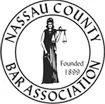Does Bankruptcy Eliminate All Debt? What Is Dischargeable/Nondischargeable?

Bankruptcy is meant to clean the slate so that you can start fresh and rebuild your financial profile. Does that mean you can eliminate all of your debts through bankruptcy? Will any debt remain? Read on to explore the difference between dischargeable and nondischargeable debts. If you’re dealing with overwhelming or burdensome debt in the Hudson Valley, call an experienced Poughkeepsie debt relief and bankruptcy lawyer at the Law Office of Taran M. Provost to explore your options for debt relief.
Bankruptcy Discharge vs. Repayment Plan
A bankruptcy discharge is a court order that fully releases the debtor from liability for a given debt. The order breaks the contract between the debtor and the creditor. The debtor is no longer obligated to pay any of the debt that remained at the time of the discharge, and the creditor is not allowed to continue to pursue any collection efforts. The discharged debt will still appear on the debtor’s credit report for a number of years, but the debtor does not owe any payments.
In a Chapter 7 bankruptcy, the covered debts are discharged after as much of the debts are repaid as possible through liquidation of the debtor’s non-exempt assets. Whatever remains is discharged.
In a Chapter 13 bankruptcy, the debtor will undertake a five-to-seven-year repayment plan, after which any remaining, covered debts will be discharged. The Chapter 13 repayment plan can include some debts that won’t be discharged, and if those debts are not fully repaid by the end of the plan, they will remain.
Most Unsecured Debt Can Be Discharged
As a general rule, most “unsecured” debts can be discharged in bankruptcy. A debt is “secured” when it is attached to a piece of property–a house, a car, a boat, etc.– that the creditor has the right to repossess and sell should the debtor fail to pay. A debt is unsecured when it is not attached to any collateral and only attaches to the person.
Debts that can be discharged in bankruptcy include:
- Credit cards
- Personal loans from friends, families, employers, businesses, etc.
- Medical bill debt
- Past-due utilities
- Most car accident claims
- Older tax penalties and unpaid taxes
- Many civil court judgments
- Government program overpayments, such as overpayments from Social Security or welfare
Secured Debt Cannot Be Discharged
Debts that are secured by collateral are not dischargeable. If you fail to pay premiums due on a loan secured by your house or car, the lender has the right to repossess the attached property and sell that property to recoup whatever remains on the loan. If the property sells for more than the outstanding amount owed on the loan, the lender will give you the extra cash back. If the property sells for less than the amount outstanding, the remainder of the debt will remain but will become unsecured.
Common secured debts include home mortgages, auto loans, boat loans, and other loans secured by specific property. These debts will not be discharged in your bankruptcy proceeding, although with the benefit of bankruptcy, you may find it easier to become current with your payments on non-dischargeable debt.
Special Types of Nondischargeable Debt: Student Loans, Family Law Debts, Taxes
In addition to secured loans, there are a few additional categories of non-dischargeable debt. These include:
- Alimony and child support. Support obligations, including spousal support and child support, are considered priority debt and are not dischargeable in bankruptcy.
- Recent back taxes and other tax obligations. Some back taxes and tax penalties are dischargeable, while the majority are not. Older income tax balances may be dischargeable, so long as the debtor timely filed their tax returns, made a good faith attempt to pay, and did not commit fraud. Other tax burdens, including more recent income taxes and other tax obligations, are non-dischargeable. Certain tax obligations–such as taxes you paid with a credit card but still owe on the card–may be dischargeable in Chapter 13 but not Chapter 7.
- Some civil court judgments. Civil court judgments based on a willful or malicious injury (e.g., a criminal assault) are not dischargeable under Chapter 13, unlike negligence-based injury claims (such as a judgment based on a negligent car crash).
- Student loans. Student loans are not dischargeable unless the debtor can show that being forced to pay the debt will cause the debtor an “undue hardship.” The debtor’s burden has shifted over the years, and discharging student loan debt is easier now than it used to be, but it’s still much more challenging than discharging normal unsecured debts. You’ll need help from a savvy student loan debt relief attorney to get your student debts discharged.
If you are struggling with debt in Orange, Ulster or Dutchess County, or anywhere in the Hudson Valley, contact the skilled and knowledgeable New York bankruptcy legal team at the Law Office of Taran M. Provost, PLLC for a free consultation on your case at 845-733-2720.



